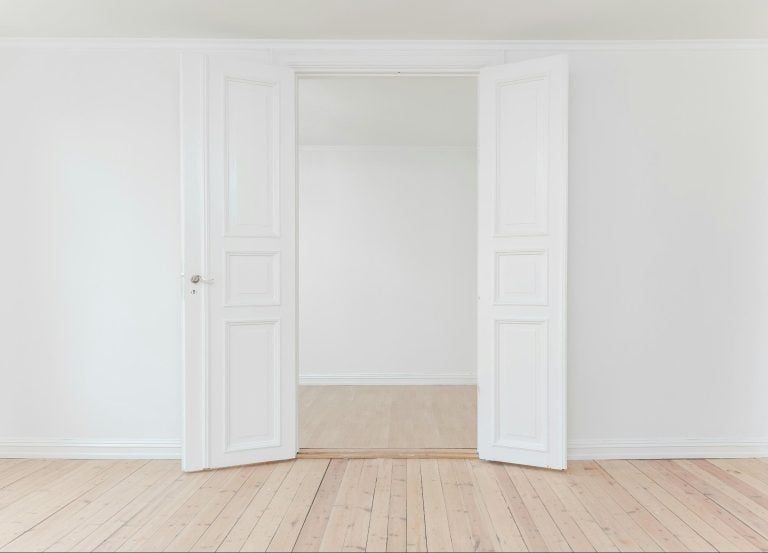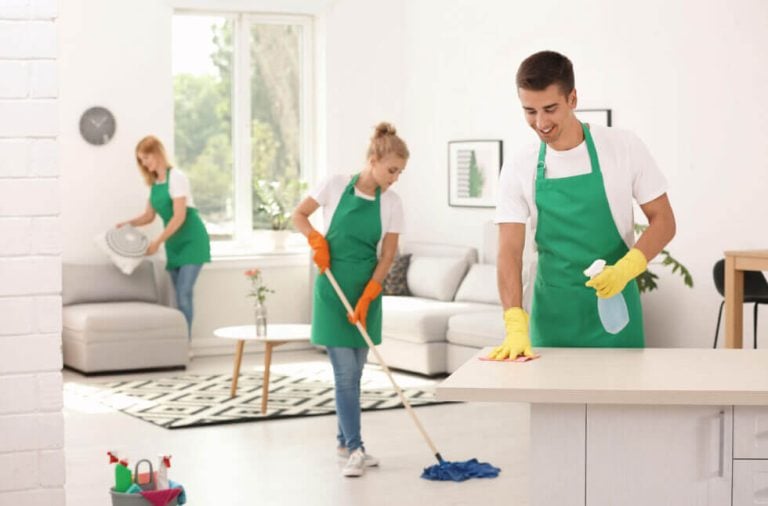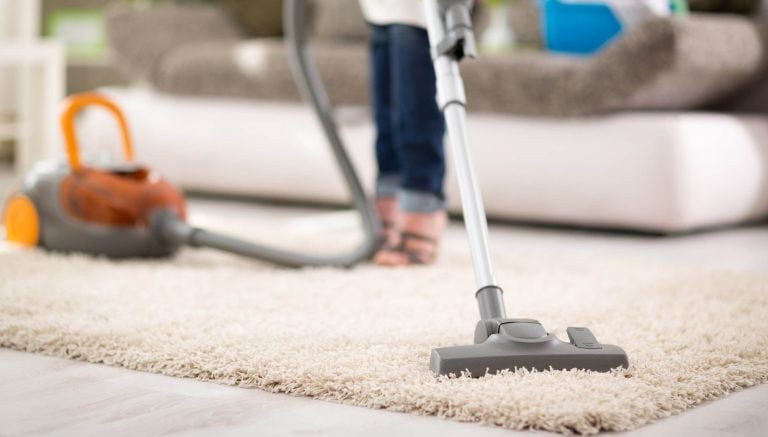The Psychology of Clean: How Tidying Up Impacts Mental Well-Being

Table of Contents
The act of cleaning, tidying and organising our homes can have a profound effect on our mental health and well-being. The psychology behind why cleaning makes us feel better is fascinating and multi-faceted.
In this article, we’ll explore some of the key ways that decluttering and maintaining a clean environment benefits us psychologically and emotionally. From reduced stress and anxiety to improved productivity and life satisfaction, there are so many reasons why it pays to keep our living spaces spick and span.
The Stress Relief of Tidying
One of the most immediate effects of tidying and cleaning our environment is that it alleviates stress. Both the act itself – the repetitive motions, the orderly process – and the end result are soothing, calming and anxiety-reducing.
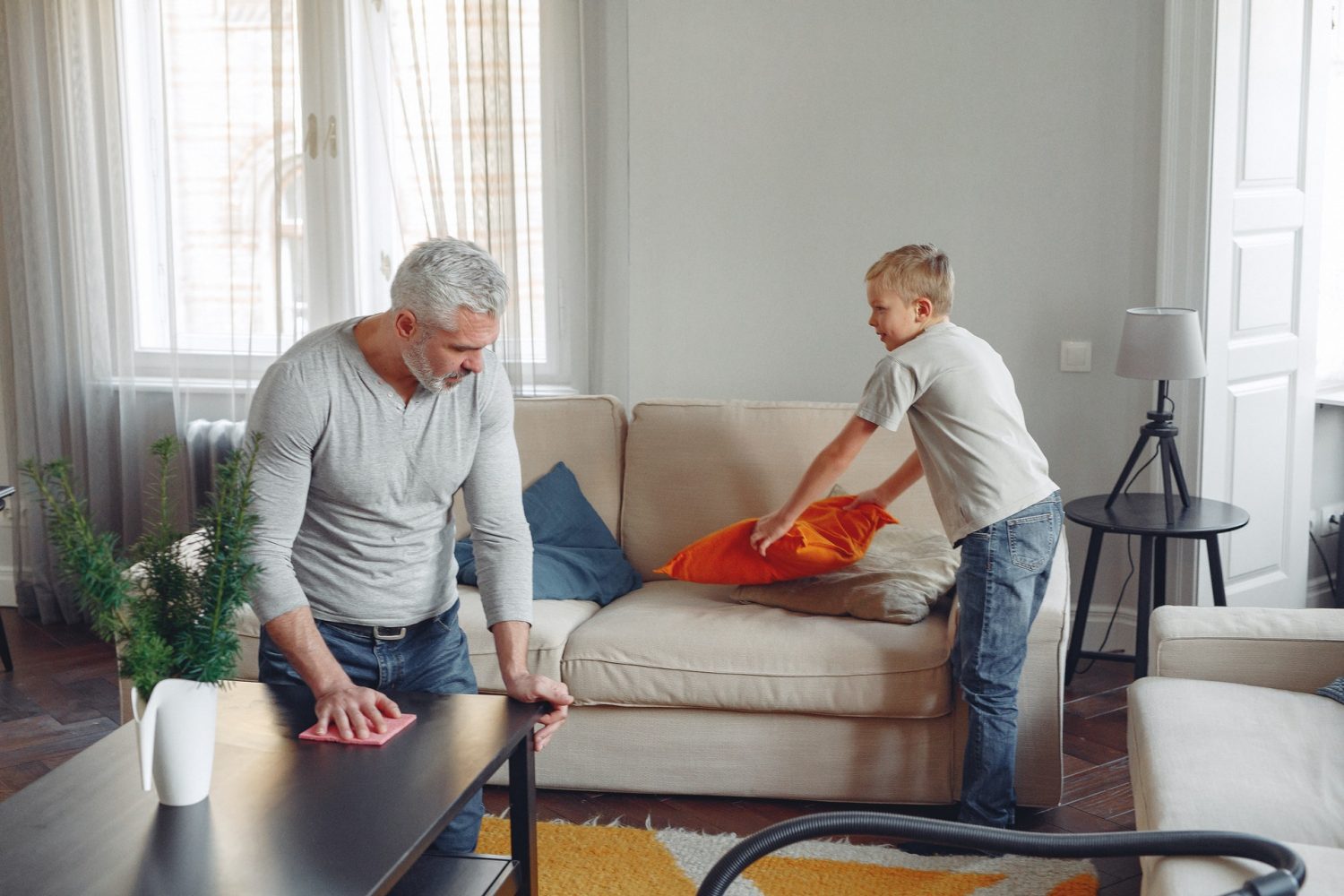
When we clean or tidy, we trigger the parasympathetic nervous system, sometimes called the “rest and digest” system. This automatically brings our heart rate, blood pressure and stress hormone levels down. We instinctively recognise cleaning as non-urgent and non-threatening, which elicits our natural relaxation response.
Additionally, clearing away clutter helps us mentally simplify and provides space both literally and metaphorically. With cleaner sightlines and fewer possessions demanding our attention, many people report feeling an instant sense of relief when they’ve finished cleaning a particularly messy room or tidied a cluttered corner. Calling professional carpet cleaning Dublin companies to handle dirty floors can also lift a huge weight off stressed minds.
The Link Between Cleanliness and Productivity
Many people intuitively recognise that cleaning and clearing clutter leads to improved concentration, motivation and efficiency. But research in environmental psychology also backs up this link between cleanliness, organisation and productivity.
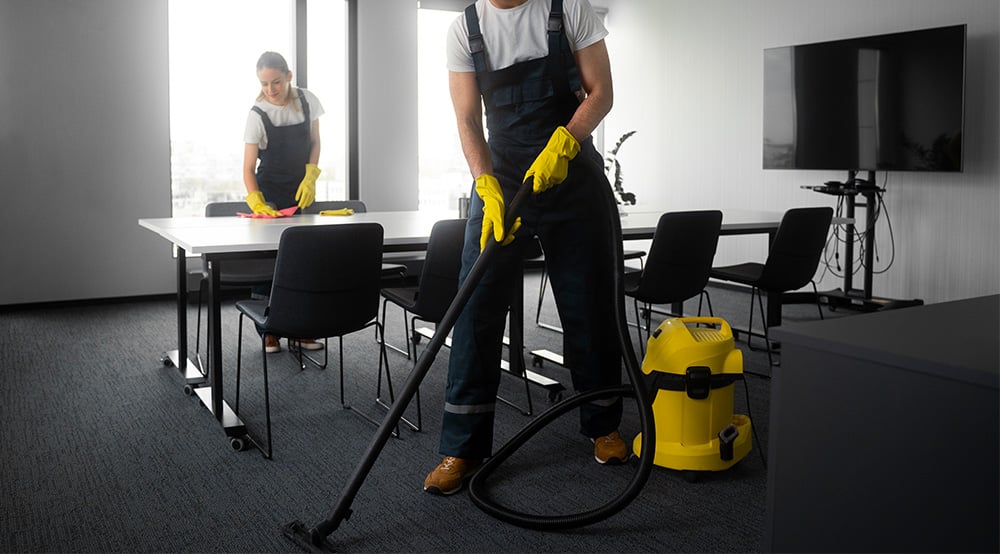
Studies show that working in a messy, disorganised environment significantly impairs many cognitive functions. Clutter competes for our attention visually and mentally clutters our minds with distractions and things we need to remember to do. Clean work spaces allow us to focus our attention effectively on the tasks at hand instead of being divided amongst piles of unrelated items. Having cleared away paperwork, trash and other unnecessary things, we can better direct our focus and do deeper, less distracted work.
Additionally, science confirms that visual reminders of unfinished tasks, like messy piles or unorganised drawers and desks, place an “attentional load” on our minds. Even if we’re not consciously thinking about them, the outstanding jobs and things lingering in these cluttered spaces continue to subtly drain our mental energy. Getting organised lifts this weight of managing visual disorder and unnecessary cues, leaving us freer to channel our effort and concentration fully on productive tasks.
Order, Efficiency and Life Satisfaction
Related to productivity, research shows that orderly, organised environments prime us to feel capable, in control and empowered to efficiently tackle goals and responsibilities. Disordered, messy spaces have the opposite effect, making tasks feel more draining, difficult and complex. After tidying or reorganising an area, people consistently rate themselves and their expected performance higher on measures of confidence, capability and self-efficacy.

By keeping our homes cleaner and more systematically organised over time, the benefits of orderliness and efficiency compound. Maintaining this organisation begins to reduce daily frictions and frustrations, as items have predictable places, making them easier to find and household functions flow more seamlessly. Our effort is directed toward meaningful activities instead of wasted on searching for things or managing complications of the disorder. Research confirms that having reliable, effective personal systems and orderly environments substantially improves homeowners’ quality of life and life satisfaction overall.
Decluttering for Mental Health
Perhaps less intuitively, extensive research also demonstrates meaningful mental health benefits from getting organised and intentionally decluttering our living environments. Along with the relief from stress and anxiety discussed above, decluttering and keeping a tidy, sparsely decorated home drastically reduces risks for depression and related issues like low self-esteem and social isolation.
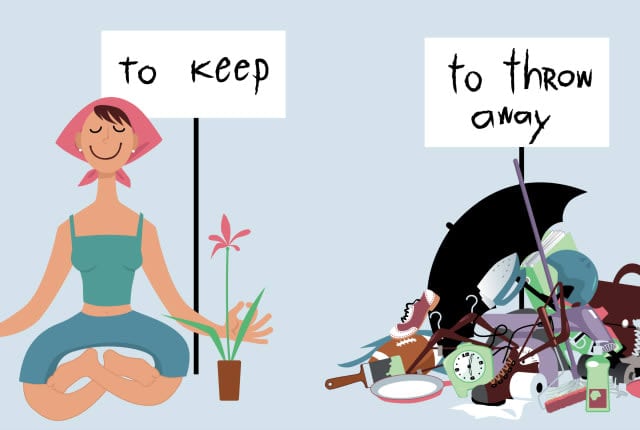
Clutter has been strongly correlated with elevated cortisol, the key stress hormone. High levels of cortisol can suppress the immune system and trigger deposits of fat tissue, especially the dangerous visceral kind around organs. Furthermore, chronic clutter can promote feelings of shame, inadequacy and loss of control when spaces feel beyond our ability to organise and do not reflect our ideal self-image.
By clearing excess and unnecessary possessions, we reduce visual triggers related to regret spending, wasted money or other difficult emotions tied to our stuff. Researchers emphasise that decluttering works best when approached as a process focused on self-reflection about our emotional relationships with our belongings, not just rapidly discarding items. This thoughtful approach elicits the most psychological benefits.
The Calm of Simple, Uncluttered Spaces
While excess clutter clearly takes a toll, maintaining a simpler, emptier environment also yields advantages for mental health. More open, negative space with clean lines and sparse furnishings has been demonstrated in multiple studies to lower physiological arousal and promote relaxation. Our bodies and minds intuit wider, less cluttered spaces as secure, free from threats and ripe for leisure. Visual simplicity elicits a primal relaxation response.
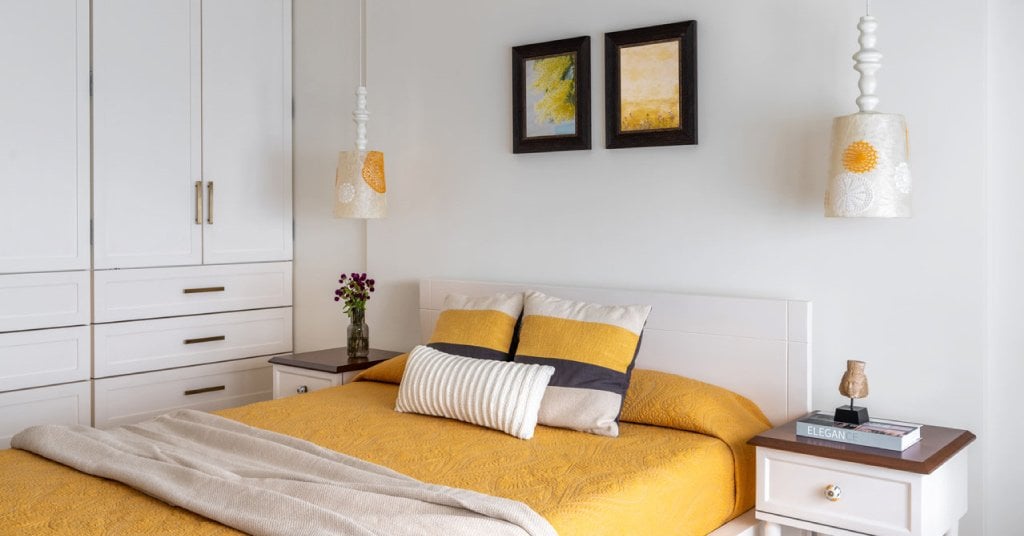
Additionally, when our homes have fewer possessions demanding our attention, we can be more present and attentive to loved ones. We have more mind space for focusing inward or on relationships. Decluttering allows us to reclaim areas like living rooms from just displaying and storing belongings to facilitating meaningful interactions and activities. Overall, research substantiates the longstanding minimalist adage that owning less frees us emotionally and mentally.
Cleanliness Helps Us Feel More in Control
Maintaining clean and tidy spaces serves as a huge boon for mental well-being by reinforcing our sense of control and restoring perceived order when life feels chaotic. Study participants consistently rate cleaner rooms higher not just on tidiness and visual appeal, but on feelings of control, calm, ease of thinking and ability to focus when working. They report preferring cleaner spaces when they feel a lack of control in other parts of their lives.

By keeping our personal environments hygienic and thoughtfully organised, we create spaces to both mirror and elicit inner peace, productivity and healthy control. Orderly surroundings reinforce and reflect internal stability. And crucially, because home is one sphere of life that we can completely control, keeping it clean gives a sense of mastery when outside life events feel overwhelming and uncertain. By effectively cleaning and organising our dwellings, we reclaim sanity and security.
The Role of Odours in Psychological Comfort
Along with visual clutter and disorder, unpleasant odours in our dwellings can significantly undermine comfort, impair concentration and even worsen moods. Conversely, spaces scented with pleasing fragrances boost psychological wellness.
Impact studies emphatically confirm that bad smells readily trigger negative emotions and physical symptoms like nausea or breathlessness tied to fight-or-flight activation in the amygdala. The sense of smell cues emotional states more immediately than any other sense. Stenches we associate with contamination especially heighten disgust and apprehension. Air fresheners may mask bad smells temporarily, but thorough cleaning removes their source.

Without even registering smells consciously, we experience emotional and physiological shifts from environmental scents. Design psychology leverages this using essential oil diffusers and baked goods smells in real estate. Clean linen, vanilla, lavender – redolent smells subconsciously soothe and welcome occupants. Conversely, cooking odours, pet smells or mustiness from dampness can deter buyers, undermine productivity and depress occupants over time through subtle ambient impact.
The Motivation of Admiring Clean Results
Though beginning cleaning often seems daunting when spaces have become extremely messy, psychologists underscore how achieving visual order can boost moods through a sense of accomplishment and pride.
Studies highlight the concordance between clean spaces and cultural values like self-discipline, responsibility and competence. Survey participants consistently rate cleaner, more organised rooms as reflecting intelligence, conscientiousness, high functioning and other positive traits. Admiring the fruits of our cleaning labour – the gleaming floor, the surfaces cleared of dust – thus bolsters self-esteem by reminding us of our diligence and capability to impose order.
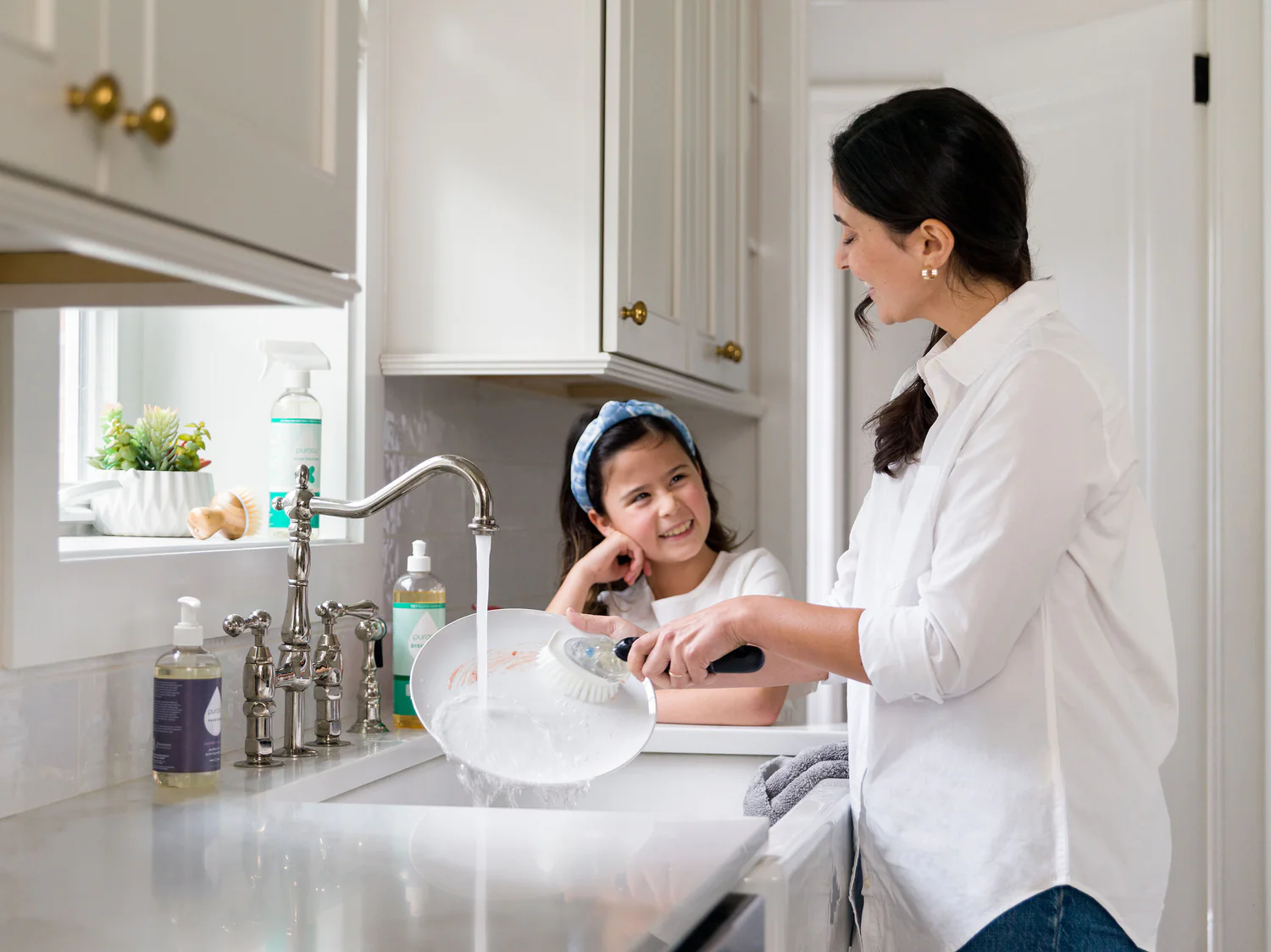
Additionally, before-and-after images provide visual confirmation both of progress made and potential for improvement. Seeing messes transformed into tidy, shining rooms provides concrete motivation to maintain higher standards going forward. Rather than stationary discouraging chaos, clean spaces mark positive forward momentum and uplift moods through proof of what determined effort can achieve. Psychologists emphasise celebrating small cleaning milestones as scaffolding toward bigger organisational goals.
Cleaning as Active Coping and Cathartic Release
Beyond just fostering orderly spaces, the acts of cleaning, organising and decluttering also serve as constructive emotional processing and coping mechanisms during times of stress or difficulty. Cathartically ‘purging’ pent-up feelings is anecdotally recounted across cultures.
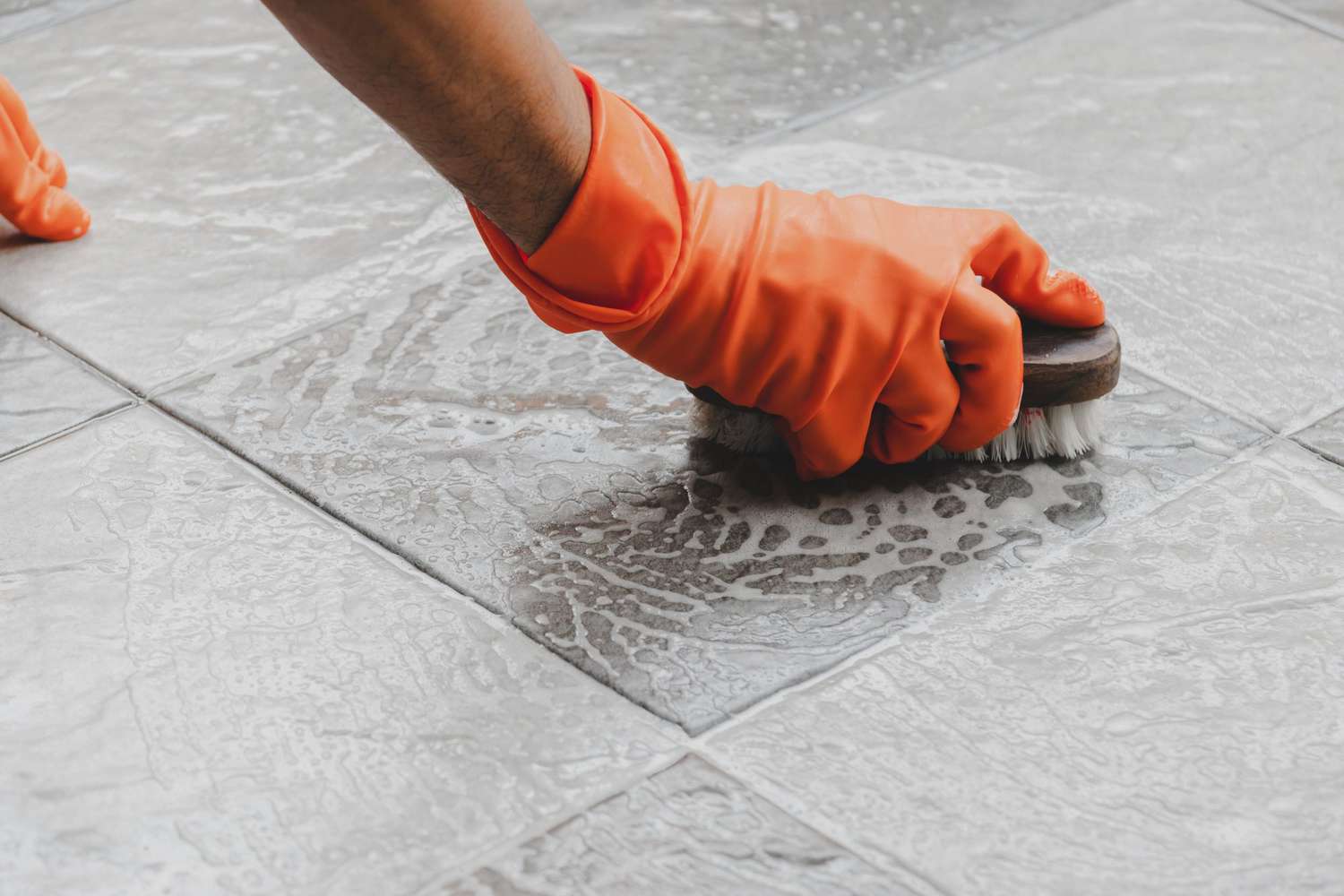
Studies document multiple psychological benefits from actively tackling cleaning tasks as outlets for frustration, grief, anxiety or other heavy emotions that accompany major life changes and trauma. Channelling turbulent feelings into purposeful activity helps restore perceived control and order when turmoil threatens to overwhelm them. Sorting possessions and reorganising surroundings reinforces capabilities through small, achievable tasks with reliable cause and effect. This can stabilise moods amidst the chaos.
By externalising internal states metaphorically onto living environments, cleaning also allows the symbolic processing of turbulent emotions around life changes. Just as houses gather clutter and dust gradually over time without occupants noticing, painful thoughts accumulate incrementally through traumatic experiences or transitions.
Attending to neglected spaces mirrors grappling with neglected emotions. Systematically airing, sorting, decluttering, and sterilising rooms allows safe confrontation/release of usually avoided psychological material. Researchers emphasise cleaning’s utility for emotional self-care during bereavement, divorce, relocation, new parenthood and other significant life shifts.
Lasting Impact on Habits & Headspace
While the immediate effects of cleaning can lift moods and reduce anxiety, studies also confirm longer-lasting psychological shifts from adopting tidiness habits over time. Maintaining clutter-free spaces not only serves functional organisation but also continually reinforces mindfulness, responsiveness and purposefulness through concepts like “a place for everything, everything in its place.”

As regular cleaning habits become embedded, researchers find subjects’ attentiveness, conscientiousness and serenity increase in all domains. Survey participants strongly self-report feeling more empowered to tackle challenges, less overwhelmed by external disarray and more resilient against life’s frictions. Just as dishes left in the sink attract more dirt over time, subjects believe orderly spaces actually beget further tidiness by making the disorder more visually obtrusive. Gradually, the mounting advantage of cleanliness compounds.
Neurologically, the regular sensory-motor tasks of cleaning routines also cultivate bodily awareness and emotional intelligence. Acts like wiping, sweeping and folding laundry demand full cognitive engagement. Over time, practitioners demonstrate heightened self-efficacy, patience and compassion.
Just as meditation requires non-judgmentally returning attention to the breath, scrubbing vegetable bins or systematically sorting toy bins trains mental discipline. Cleaning forms spaces for consciousness.
Cleanliness & Social Bonds
Finally, maintaining clean communal spaces also forges social cohesion and emotional intimacy between home cohabitants. Shared participation in cleaning routines builds bonds through good-natured teamwork. And clutter-free, neutral surroundings invite occupants to meaningfully congregate without visual distraction.

Research on family relationships emphasises that smoothly running, orderly households elicit more open, frequent communication between generations as basic needs are reliably met. Tidiness enables connection. Among partners and roommates, equitably sharing cleaning responsibilities also reduces resentment and conflict through fairly distributing an unavoidable burden. Participating cooperatively in cleaning as a team facilitates trust and support.
Additionally, guests inherently experience cleaner rooms as more welcoming and comfortable to settle into. Their sensory experience is not bombarded by competing clutter and odours. Hosts perceive offering tidy spaces as warm invitations for cherished company to relax. Pride in an orderly home projects hospitality, valuing visitors’ ease. Cleanliness undergirds meaningful bonds.
Conclusion
The psychology of cleaning reveals profound mental and emotional benefits from maintaining tidy, clutter-free and extensively organised home environments. From lowering anxiety and everyday frustrations to priming productivity and efficiency to supporting healthy social connections, cleanliness positively impacts individual well-being and home satisfaction overall.
Decluttering and adopting cleaning strategies tailored for mental health can vastly improve mood, self-image and quality of life. Our dwellings exist as both reflections and extensions of ourselves. By taking time and care to tidy them, we also cleanse stresses and make space for personal clarity and growth.

